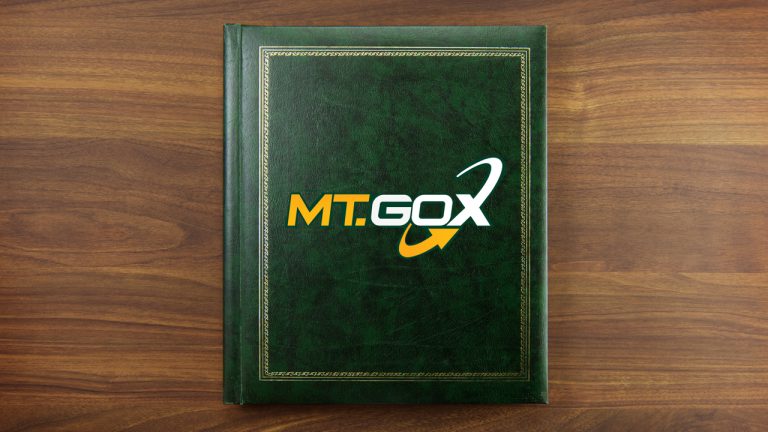 The Tokyo bankruptcy court trustee for the defunct Japanese bitcoin exchange Mt Gox, Nobuaki Kobayashi, has published a letter stating that creditors have until March 10, 2023 (Japan Time) to register their repayment claims. Kobayashi explains that the team is dealing with “a large number of inquiries” and may not be able to respond to […]
The Tokyo bankruptcy court trustee for the defunct Japanese bitcoin exchange Mt Gox, Nobuaki Kobayashi, has published a letter stating that creditors have until March 10, 2023 (Japan Time) to register their repayment claims. Kobayashi explains that the team is dealing with “a large number of inquiries” and may not be able to respond to […]
The 120-page motion came from a creditor who asked for the appointment of a chapter 11 trustee citing alleged fraud and incompetence at Voyager.
A Voyager creditor and finance lawyer wants to see a chapter 11 trustee appointed in crypto brokerage Voyager Digital’s bankruptcy trial, which would see Voyager lose control of its estate.
In a Feb. 1 motion, Voyager creditor Michelle DiVita accused Voyager of having a “history of financial statement inaccuracies and public misrepresentations that were known, or reasonably discoverable, at the beginning of the bankruptcy proceeding."
Due to this pre-bankruptcy conduct, DiVita believes that an examiner or trustee should have been requested, and is now doing so herself.
The filing alleges that Voyager “concealed the true nature of its lending activities by publishing financial reports that materially understated its loan positions by more than $1 billion USD.”
@investvoyager loans disclosed on March 31 financial report: $2.2B.
— Michelle DiVita (@ChelleDiVita) January 13, 2023
Actual loans on April 3: $3.1B
$1.1B concealed in one business day.
Releases are unconscionable @VoyagerUCC @DOJCrimDiv #VGX pic.twitter.com/dP8g9yvY48
A former director and CIO for Voyager, Shigo Lavine, highlighted some of the key accusations made in the filing in a lengthy Feb. 1 twitter thread.
For example, Voyager allegedly underreported a loan to crypto hedge fund Three Arrows Capital by $609 million and also undervalued Bitcoin (BTC) in its financial reports by 546% to downplay the size of its loans.
The Debtor provided assurances in regards to its ability to raise capital and meet liquidity requirements.
— Shingo Lavine (@shingolavine) February 1, 2023
This led many (including myself) to incorrectly conclude that Voyager would be able to survive this despite 3AC going under pic.twitter.com/jjnloWDG7A
According to the filing, crypto exchange Coinbase also caught wind of Voyager’s “financial reporting inconsistencies,” and had reportedly backed out of a potential deal to acquire the assets of Voyager after finding “the financials don’t add up.”
The bankruptcy proceedings already involve a United States Trustee, who is required to bring a motion to appoint a chapter 11 trustee when there are “reasonable grounds to suspect” that the debtor “participated in actual fraud, dishonesty or criminal conduct.”
While the U.S. Trustee appoints a creditors committee and reviews applications for the recompensation of professionals amongst other duties, they may also hire a bankruptcy trustee to manage the debtor’s affairs if the debtors are not allowed to do so themselves.
Cointelegraph has contacted Voyager for a response to the allegations and the motion but did not receive an immediate response.
Related: Voyager tells court Binance acquisition plan is ‘sound business judgment,’ urgently needed
In other news, both Voyager and its creditors have pushed back at an attempt by bankrupt trading firm Alameda Research to claw back $446 million in loan repayments.
After commencing chapter 11 proceedings on Jul. 5, Voyager had demanded the repayment of all its outstanding loans to Alameda, and was repaid in full.
However, Alameda sought to recover the funds in a Jan. 30 court filing, arguing that because they repaid the loans within 90 days of filing for chapter 11 bankruptcy themselves, they could “claw back” these funds for the benefit of Alameda creditors.
Voyager says that its creditors have suffered “substantial harm” due to Alameda making a bid for Voyager’s assets that it could not honor, costing them in excess of $100 million. Voyager argues that this makes Alameda’s claim subordinate to those of its other creditors.

FTX lawyers, joint provisional liquidators of FTX.US and the Bahamas and a committee of creditors have all opposed the appointment of an independent examiner.
An investigation into FTX’s collapse by an examiner could cost the firm upwards of $100 million without providing any benefit to creditors or equity holders, argues lawyers representing the bankrupt crypto exchange.
The arguments were part of a Jan. 25 objection to a motion from the United States Trustee in December, which called for the judge to appoint an independent examiner to ensure any investigations are transparent and their findings made public.
This will be fascinating.
— MetaLawMan (@MetaLawMan) January 26, 2023
4 Senators submitted a letter asking for an Independent Examiner. Will they do more?
Several States have entered the FTX case. Will they lend support for an Examiner?
The SEC asked for the Independent Examiner in Enron. Will they say anything here? https://t.co/KiSZKYonCD
FTX lawyers argued that creditors would not benefit from an examiner investigation which duplicates investigations led by FTX’s CEO John J. Ray III, a committee of creditors, law enforcement agencies, and congress, adding:
“The appointment of an examiner, with a mandate to be determined, can be expected to cost these estates in the tens of millions of dollars. Indeed, if history is a guide, the cost could near or exceed $100 million.”
The creditors committee, also known as The Official Committee of Unsecured Creditors, submitted their own objection to the appointment of an independent examiner on Jan. 25, also citing the prohibitive costs involved and the investigations of various parties which are already underway.
In the original motion, the U.S. Trustee had noted if the court was concerned about the duplication of work, it could allow the examiner to access existing work, adding:
“An examiner may also allow for a faster and more cost-effective resolution of these cases by allowing Mr. Ray to focus on his primary duty of stabilizing the Debtors’ businesses while allowing the examiner to conduct the investigation.”
Joint provisional liquidators in the Bahamas and FTX.US also opposed the appointment on Jan. 25, pointing to a section of the bankruptcy code which allows the judge to appoint an examiner “as is appropriate,” and arguing that the unnecessary costs and delays which would accompany the appointment of an examiner renders it “inappropriate.”
Related: Breaking: BlockFi uncensored financials reportedly shows $1.2B FTX exposure
The appointment of an independent examiner has been a key topic throughout FTXs bankruptcy trial.
On Dec. 9 a group of four U.S. senators which included Elizabeth Warren wrote an open letter to Judge John Dorsey of the U.S. Bankruptcy Court for the District of Delaware, claiming that FTX’s counsel Sullivan & Cromwell had a conflict of interest in the case and cast doubt over their ability to provide findings which inspire confidence.
However, the judge ruled on Jan. 20 that there were no potential conflicts of interest sufficient to stop the law firm from continuing to act as FTX’s counsel.
The judge will decide whether to accept the appointment of an independent examiner in a court hearing on Feb. 6.
Independent examiners are often appointed by bankruptcy courts to investigate details of complex cases brought before them, and have been appointed in other high-profile bankruptcy cases such as Lehman Brothers during the subprime mortgage crisis and the crypto exchange Celsius.
 The defunct crypto lender Celsius is exploring the possibility of creating a debt token to repay creditors. The plan would need to be approved by regulators, but if approved by the trustee and financial authorities, the debt token would be called an “asset share token (AST).” Celsius Proposes ‘Asset Share Token’ as Plan to Repay […]
The defunct crypto lender Celsius is exploring the possibility of creating a debt token to repay creditors. The plan would need to be approved by regulators, but if approved by the trustee and financial authorities, the debt token would be called an “asset share token (AST).” Celsius Proposes ‘Asset Share Token’ as Plan to Repay […] Two days ago, bankruptcy administrators and FTX debtors published an update for unsecured creditors claiming the discovery of $5.5 billion in liquid assets. Roughly $3.5 billion of these funds are cryptocurrency assets, with 11 different digital currencies classified as “liquid assets.” However, two of the firm’s top cryptocurrency caches are not liquid as the company’s […]
Two days ago, bankruptcy administrators and FTX debtors published an update for unsecured creditors claiming the discovery of $5.5 billion in liquid assets. Roughly $3.5 billion of these funds are cryptocurrency assets, with 11 different digital currencies classified as “liquid assets.” However, two of the firm’s top cryptocurrency caches are not liquid as the company’s […]
Numerous parties have objected to the retention of Sullivan & Cromwell as lead counsel to FTX, citing conflicts of interest and insufficient disclosures.
The CEO of crypto exchange FTX has rejected calls for its law firm Sullivan & Cromwell to be replaced as lead counsel in its bankruptcy case.
John J. Ray III, who was appointed as the new FTX CEO on Nov. 11, filed a court motion on Jan. 17, arguing that Sullivan & Cromwell has been integral in taking control over the “dumpster fire” that was handed to him.
Ray suggested that retaining their services is in the best interest of FTX creditors, arguing:
“The advisors are not the villains in these cases. The villains are being pursued by the appropriate criminal authorities largely as a result of the information and support they are receiving at my direction from the Debtors’ advisors.”
The U.S. Trustee, Andrew R. Vara, had filed an objection to the retention of the law firm on Jan. 14, citing two separate issues.
He claimed that Sullivan & Cromwell had failed to sufficiently disclose its connections and prior work for FTX. He also pointed out that based on publicly-available knowledge, a former partner of the law firm became a counsel to FTX 14 months prior to the bankruptcy filing.
Meanwhile, lawyer James A. Murphy, who goes by the Twitter handle MetaLawMan, suggested on Jan. 14 that the prior work it had done for FTX was not the law firm's only conflict of interest in the case.
At the same time that Sullivan & Cromwell lawyers have had unrestricted access to all internal data about the value of FTX's assets and liabilities...
— MetaLawMan (@MetaLawMan) January 13, 2023
Apollo Global has (reportedly) been quietly offering to buy up creditor claims from FTX customers for pennies on the dollar.
He claimed that private equity firm Apollo Global has been buying up creditor claims from FTX customers for a fraction of their worth. Murphy notes that Apollo’s Chairman of the Board, Jay Clayton, is also employed by Sullivan & Cromwell, which has access to sensitive financial information.
The U.S. Trustee also believed that the current application to retain Sullivan & Cromwell was flawed, as they would “usurp” an independent examiner’s work and the parties would be duplicating their services at the expense of the FTX estate.
The Trustee had first called for the appointment of an independent examiner on Dec. 1, pointing to a part of the bankruptcy code which mandates the appointment of an examiner when certain debts exceed $5 million.
Related: SBF says Sullivan & Cromwell contradicted itself with insolvency claims
On Jan. 10, a bipartisan group of four U.S. representatives sent a letter to Delaware bankruptcy judge John Dorsey, requesting he approves the motion to hire an independent examiner and expressed their disbelief that the law firm could be labeled as a “disinterested” party.
Dorsey however labeled the letter as “inappropriate ex parte communication,” and said he would not take it into account when he decides whether to appoint an independent examiner or approve the retention of Sullivan & Cromwell.
Dorsey however is set to consider the objection of an FTX creditor filed on Jan. 10 when deciding whether Sullivan & Cromwell should be retained, with the creditor also suggesting that the law firm's previous work for FTX constitutes a conflict of interest.

Administrative expenses from the bankruptcy proceedings have already topped $53 million, and continued delays are chipping away at Celsius’ estate.
Bankrupt crypto lender Celsius Network is planning to file a motion that would extend the deadline for users to submit their claims by another month.
The crypto community has started to grow impatient, noting that Celsius’ lawyer fees have continued to stack up and are eating away at the lender's estate.
In a Dec. 29 tweet, Celsius announced that it would seek to extend the current deadline for claims from Jan. 3 to early February.
The bankruptcy court is set to hear the motion on Jan. 10, and according to Celsius, the Jan. 3 deadline will be extended until at least then.
Celsius is preparing to file a motion later this week requesting an extension of the bar date, which is the deadline to file a claim, from January 3, 2023, until early February.
— Celsius (@CelsiusNetwork) December 29, 2022
The claims process allows creditors who believe they have a right to payment to file claims during bankruptcy proceedings. Celsius’ creditors had made over 17,200 claims as of Dec. 29.
However, Celsius’ creditors appear antsy as Celsius’ administrative fees have continued to rack up since it first filed for bankruptcy in July. A Dec. 27 Financial Times report noted that the fees charged by bankers, lawyers and other advisers in the bankruptcy case had already reached $53 million.
As an example, a Dec. 15 fee statement from one of the law firms representing Celsius, Kirkland & Ellis, requested a fee of over $9 million for work done during the months of September and October.
In comparison, only $44 million has so far been earmarked by Celsius to be returned to customers. This money belongs to users who only ever held funds within the Custody Program, and represents a minority of the $4.72 billion of user deposits held by Celsius.
Some in the crypto community have been unimpressed with the latest postponement in the proceedings, alleging that it’s yet another “delay tactic.” For example, one user noted “Stop wasting time stop extending, just go on with proceedings and give me my money back!!!!” while another simply said: “Stop wasting time and my money.”
So the lawyers get millions but I wonder what us small fry folks get?
— Chris (@browncoat1of1) December 29, 2022
Related: 7 biggest crypto collapses of 2022 the industry would like to forget
Global investment platform BnkToTheFuture founder Simon Dixon, who has been an active voice in the Celsius bankruptcy proceedings, noted in a Dec. 23 tweet that by the time users are able to get their funds back from Celsius, they should only expect around to receive around hal what they put in.
Prepare yourself for 50% in 6 months with #Celsius Chapter 11 to manage your expectations | Focus on your family over XMas & rebuilding in 2023. https://t.co/E0WeDuPem0
— Simon Dixon (@SimonDixonTwitt) December 23, 2022
At the behest of Celsius, the U.S. trustee, and the unsecured creditors’ committee, judge Martin Glenn appointed fellow judge Christopher Sontchi to be a “fee examiner” on Oct. 20. His job is to negotiate and approve the fees set by lawyers and other professionals in the case.
The fee examiner is also being paid out of Celsius’ estate, with the latest fee statement submitted on Dec. 21 requesting just under $20,000 for work done during November.

The Federal judge overseeing the Celsius case has asked for an investigation to look into whether the firm acted like a Ponzi scheme and has asked for additional details before approving a $3 million bonus scheme.
The judge overseeing the Celsius bankruptcy case has ordered the examiner and the official committee of Celsius creditors to determine who will head a probe into whether the firm was operating like a Ponzi scheme.
The order during the Nov. 1 hearing comes in response to allegations from customers that Celsius had used assets of new users to pay yields and facilitate withdrawals to existing users, and as a result, fits the legal definition of a Ponzi scheme.
The judge had approved the appointment of an independent examiner on Sep. 9 to look into aspects of Celsius’ business following calls for greater transparency into its operations, such as its tax payment procedures and why some customers were moved to different accounts.
It is not the first time the embattled lender has been accused of operating like a Ponzi scheme, with decentralized finance (DeFi) protocol KeyFi having alleged that Celsius acts like one when it sued Celsius on Jul. 7.
Celsius had filed for chapter 11 bankruptcy on Jul. 13, citing a crash in crypto values and poor asset deployment decisions, and the case has been proceeding through the court system since.
In the Nov. 1 hearing, the Federal judge, Martin Glenn, also told Celsius that they would have to include more details in its Oct. 11 motion to pay nearly $3 million to 62 employees as part of a key employee retention plan (KERP), with Law360 quoting the judge as saying:
“I was shocked when I saw the redactions. I had never seen anyone try to redact everything,”
Glenn is referring to a section within the motion that outlines the participants of the bonus, where every detail relating to the individuals available to the public had been redacted, including their salaries and job descriptions.
Related: Core Scientific may consider bankruptcy following uncertain financial condition: Report
The U.S. Trustee had filed an objection on Oct. 27 to the KERP, taking issue with the lack of identifiable metrics within the motion to warrant such an expensive bonus scheme and that it prevented interested parties from arguing whether some participants could be considered insiders and therefore ineligible for a KERP.

The Trustee has objected to the retention bonus, citing a lack of sufficient information within the motion to warrant such a high payout and a lack of clarity around whether any recipients should be considered insiders.
The U.S. Trustee overseeing the Celsius chapter 11 bankruptcy case, William Harrington, has objected to a Celsius motion that would see 62 of its 275 employees paid a retention bonus totaling $2.96 million.
The Trustee has blasted Celsius in its supporting statement for the objection filed on Oct. 27, noting:
“It defies logic, not to mention the Bankruptcy Code, that a company where the majority of its functions are no longer providing services, would now propose a multi-million dollar bonus scheme.”
For the “bonus motion”, as it is aptly named, to receive approval, the Trustee claims that Celsius must show that the bonuses are reasonable based on the facts of the case. Without any identifiable metrics, the Trustee says Celsius has failed to do so.
While the objection does not infer that Celsius employees are not deserving of an essential employee retention program (KERP), it points to the information provided by Celsius as being insufficient to justify such a high amount.
KERPs are designed to motivate employees to advance a successful restructuring outcome. While adding to executive pay ahead of a potential restructuring may seem counterintuitive, it can often be in the best interest of stakeholders.
Related: Quebec Pension Fund loses almost entirety of its Celsius investment in less than ten months
Unlike the personal information of Celsius creditors, details of the KERP recipients have been kept out of the public eye, with an unredacted breakdown provided only to the court, the Official Committee of Unsecured Creditors, and the Trustee.
The Trustee has taken issue with that as well, claiming other interested parties are unable to argue whether the participants could be considered insiders, which would render them ineligible for a KERP.
Celsius had filed the bonus motion on Oct. 11, with a hearing on the proposal and related relief set to take place on Nov. 1.
Meanwhile, the lender is also being blamed for causing financial distress at Bitcoin (BTC) miner Core Scientific, who claimed on Oct. 19 that Celsius has refused to pay its bills since it filed for chapter 11 bankruptcy on Jul. 13, resulting in Core Scientific losing approximately $53,000 per day.
 Mt Gox creditors have been issued new information concerning their claims and it seems they now have until January 10, 2023 (Japan time) to register for a repayment method. The latest notice says that any creditors that wish to receive payment, must finish the “selection and registration” section on the system platform by the deadline. […]
Mt Gox creditors have been issued new information concerning their claims and it seems they now have until January 10, 2023 (Japan time) to register for a repayment method. The latest notice says that any creditors that wish to receive payment, must finish the “selection and registration” section on the system platform by the deadline. […]